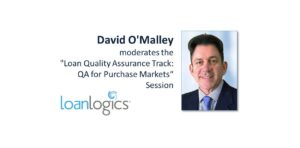 You remember TRID’s “Black Hole?” The circumstance created by the new rule whereby a lender is unable to reset fee tolerances once an initial Closing Disclosure is issued and fees increase but closing gets delayed for more than 3 days.
You remember TRID’s “Black Hole?” The circumstance created by the new rule whereby a lender is unable to reset fee tolerances once an initial Closing Disclosure is issued and fees increase but closing gets delayed for more than 3 days.
The question remains, how can a lender recover a fee increase once a CD is issued but closing gets delayed to a date that is more than 3 days from when the lender learns of the increase.
The answer is that they can’t; unless they decide to cancel the loan and start all over. In most cases, this is not a viable or desired option.
In July of 2016, CFPB requested comments on proposed changes and clarifications to TRID. These included the issue resulting in what we now refer to as the ‘Black Hole’.
Unfortunately, based on the comments received, it was determined by CFPB that confusion still existed over what should be allowed when a lender needed to update fee tolerances after issuance of the initial CD.
This confusion caused CFPB to put out a new proposal on August 11th asking for more comment on what to do about closing the “Black Hole”. Comments are due by October 10th.
CFPB is considering allowing lenders to use a revised Closing Disclosure to reset tolerances after the initial CD is issued regardless of the number of days to consummation.
This would appear to be the simple solution. If a bona fide circumstance results in a fee increase, a lender could just issue a revised CD updating the fee data and the problem is solved. Right?
Not so fast. Does that defeat one of the original intent of the rule? The rule was supposed to provide a consumer with a realistic disclosure of the fees and costs they should expect at their loan closing within a reasonable time frame 3 days prior to the closing.
If a lender can issue a revised CD anytime to reset the tolerances, what would stop them from issuing the CD early on in the process, like immediately after issuing the initial LE. They could then issue revised CDs right up until the day of closing to update fees.
We may end up right back where we started with the consumer not knowing what their final fees and costs might be until the day of closing. We need to find a happy medium.
To me, the key seems to be the timing of when the lender learns of the need for the fee increase and when they must issue a revised disclosure.

I can understand CFPB’s intent to not allow a revised LE after the initial CD. A lender should have a pretty good idea of what will be charged to a consumer in connection with the loan. That should be accurately reflected in the initial CD.
What they didn’t account for were the last minute changes that are out of the control of a lender, e.g. buyer or seller delays, weather conditions, builder delays, just to mention a few.
In such cases, a lender may incur additional costs. A lender should not be penalized for such events.
Maybe, the law should be amended to allow the lender to issue a revised Closing Disclosure to reset any fee tolerances resulting from a bona fide change that is out of the control of the lender, after issuance of the initial CD, as long as that CD is issued in a timely manner.
This will retain the requirement for the lender to issue the final LE and initial CD within the current timeframes outlined under the current law while allowing a revised CD to reset the tolerances resulting from circumstances beyond the lender’s control. The law should call for documentation to evidence such an event and that this documentation is retained in the loan file.
If you have comments or suggestions on this topic, I recommend you submit them to the CFPB. You can review the CFPB proposal at the link provided (“Black Hole”). Remember, you only have until October10, 2017 to do so.
